How Pell and two popes were caught in Vatican’s unholy war
A new book by one of Italy’s most respected Vatican journalists includes revelations about the late Cardinal Pell and the power battles that stymied efforts to reform the Holy See’s finances.
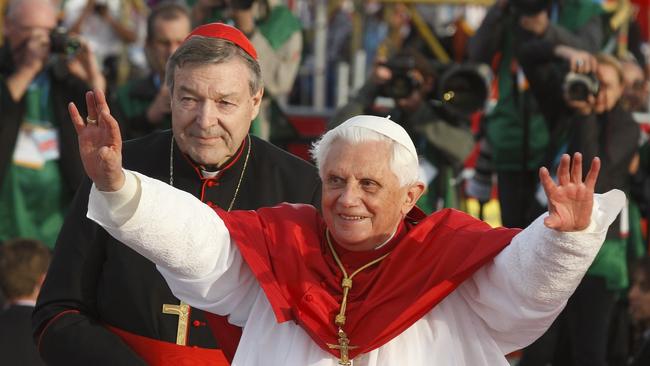
The murky campaign to derail Pope Francis’s financial reforms was launched just months before his 2013 election, when several hundred million euro were siphoned out of Vatican coffers into a private investment fund “shielded from scrutiny” of financial authorities.
According to a new book, to be published in Italy next week, the secret operation to seize control of Holy See cash coincided with the launch of Operation Tethering, the “intel probe” launched by Victoria Police to find out if there were any unreported abuse allegations against Cardinal George Pell.
Written by Maria Antonietta Calabrò, one of Italy’s most respected Vatican investigative journalists, The Throne and the Altar includes two chapters devoted solely to the late cardinal and examines the nefarious forces, intrigue, dirty money and “no-holds-barred” power battles that stymied both Pope Benedict and the reforms of his successor, Pope Francis.
Calabrò argues that when seen together, a series of seemingly unrelated events that unfolded in Rome and Australia between 2013 and 2019 reveals a “chilling and potentially orchestrated campaign of incatenamento (enmeshment)” to derail Pell and those who worked with him on Francis’s financial reform agenda.
“What emerges is the existence of a network of people and a web of interests that have exerted their influence on the Vatican throughout the last two papacies. Over 20 years, the role of the key protagonist is played by money: you need money to maintain power and to have influence inside the Vatican,” she told The Australian.
“The process of ‘incatenamento’ of Pell is very complex and lasted six years. It needs to be understood on two, concurrent fronts: what was happening in Australia and what was happening in the Vatican in relation to the London property deal (the ill-fated £350m acquisition of the London commercial property on Sloane Avenue that sparked the corruption trial).
“We only found out about the latter and how they are possibly related during the recent Vatican (financial crimes) tribunal hearings. As Agatha Christie observed, ‘Any coincidence is worth observing. You can throw it away later if it is only a coincidence’.”
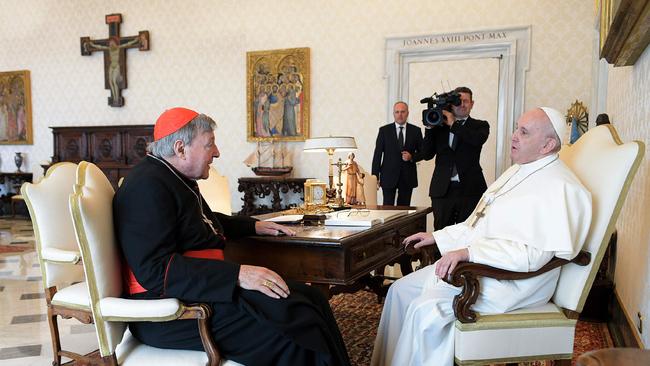
Calabrò says the instruction to move the Secretariat of State’s capital out of the Vatican was authorised by its deputy, then archbishop Angelo Becciu, on October 25, 2012. This occurred four months before the embattled Benedict resigned on February 28, 2013, amid persistent, published rumours of his pending death and the leaking of his personal correspondence, which ultimately sparked the financial, blackmail and sexual scandal that would become known as Vatileaks I.
“This sequence of events and dates is shocking because it spans the end of Benedict’s papacy and the beginning of Francis’s,” says Calabrò. “Advisers created a kind of financial ‘container’, made to remove Vatican money from future scrutiny: it was known as the Athena Capital fund and we know that this was ready to go by January 2013.
“On February 23, five days before Pope Benedict’s resignation – and a fortnight before Pope Francis was elected by the conclave on a mandate for financial reform – around €200m of Vatican capital was readied for transfer to the external fund.”
Calabrò reports that by July 2013, a dizzying array of lines of credit had been secured for the Athena Capital fund – all guaranteed by Secretariat of State funds – and a middleman, Raffaele Mincione, in charge of its management.
Calabrò, who first interviewed Pell when Pope Francis appointed him Prefect of the new Secretariat for the Economy in February 2014, says the Australian cardinal hit the ground running and by December that year was already versed enough in the challenge that faced him to write an article for the US Catholic Herald under the headline, “The days of ripping off the Vatican are over”. In it, Pell insisted reports suggesting the Holy See was broke were wrong and that he had discovered “hundreds of millions of euros tucked away in particular sectional accounts (that) did not appear on the balance sheet”.
“Since his election, Pope Francis has explicitly endorsed the program of financial reforms, which are well under way and already past the point where it would be possible to return to the ‘bad old days’,” warned Pell. “Much remains to be done, but the primary structural reforms are in place.”
Pope Francis approved the statutes to formally establish the Council and Secretariat for the Economy and the Office of the Auditor-General two months later, and on June 5, 2015, Libero Milone, a former Deloittes president, was in place heading the independent audit office.
From this moment however, events in Rome and Melbourne took myriad unexpected turns, sparking a series of “coincidences” worthy of a crime thriller.
As the newly appointed auditor-general, Libero Milone began to ask for documentation to explain what he deemed irregular Vatican real estate transactions, Melbourne’s Herald Sun, on February 20, 2016, carried an exclusive report that Pell had been under investigation for historic sexual abuse against minors “for a year” – when in fact Operation Tethering had begun three years before that. And, while Milone’s requests for information were stonewalled and his meetings with Pope Francis, until then held monthly, were stopped on April 1, 2016, with no explanation, Pell had apparently also smelled a rat, this time flagging two loans, requested by the Secretariat of State in tandem with Credit Suisse and Swiss private bank BSI, to Vatican financial authorities, as “high-risk”.
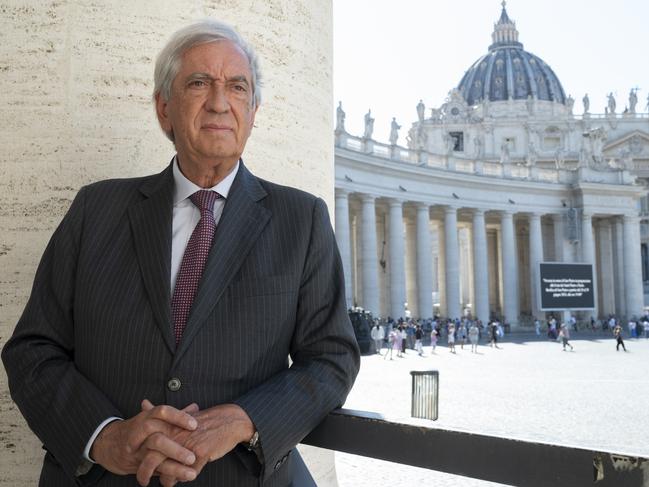
Prosecutors would later tell the court the loans were guaranteed by nearly €700,000,000 which belonged to the Secretariat of State, effectively turning the transaction into the broker Raffaele Mincione’s merchant bank.
Just one week later, on May 24, Swiss anti-money laundering watchdog FINNA ordered the shutdown of BSI and its Italian branch, citing breaches of money-laundering regulations.
In Melbourne, however, the Pell investigation was gathering steam and, by the following October, police had interviewed Pell in Rome and returned the evidence brief to the DPP for review. By this time, writes Calabrò, the complex financial set-up to buy the controversial Sloane Avenue property in London was well in train when $415,000, the first of a series of payments from the Secretariat of State, was transferred to Australia. A second followed on May 27, 2017, and a month later, on June 19, Libero Milone and his deputy, Ferruccio Panicco, were interrogated by Vatican police, accused of spying and forced to resign their posts in mysterious circumstances.
Calabrò says that less than a week later, on June 28, Giovanni (Jonny) Gambino, son and heir of the New York mafia family, offered an unprecedented interview to the Daily Mail in which he warned that Pope Francis would rue the day if he continued with plans to excommunicate Catholics with mafia ties. Priests accused of pedophilia were offered a second chance, he said, and the excommunication of mobsters was not a Christian act. “Jesus said it is not the healthy who need a doctor but those who are sick … if the mafia did not exist in Sicily, Saint Peter’s would be transformed into a mosque.”
The following day, the Vatican press office issued a statement confirming Pell would return to Australia to face the justice system over charges of historic sexual abuse of minors. The Secretariat of Economy, the press release said, would restrict itself solely to dealing with day-to-day-business in his absence.
“All curiosity about the Sloane Avenue deal was stymied,” she said.
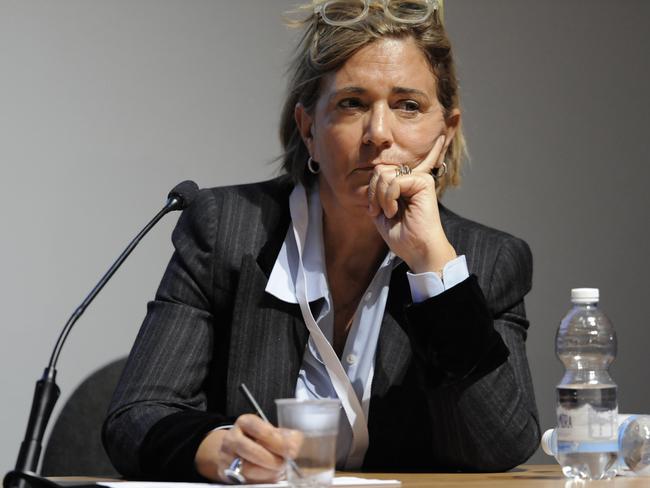
The Vatican taskforce examining mobster excommunication, Calabrò observes, has not reported since. When she told Pell and showed him the Gambino interview in December 2020, he said he had no idea it had occurred, and was “very shocked”: “At the moment I don’t think I can say much more but, certainly, it is very interesting,” Pell told her.
The Australian has reported since and in detail that in all, a total of $2.3m was sent to Australia from the Vatican between May 2016 and June 2017, money later officially attributed to the acquisition of the “domain name Catholic” from a US tech and risk analysis company called Neustar – a suggestion contested publicly several times by Pell himself, the last time on May 2022 when asked to comment on Becciu’s denials in self-defence during the Vatican trial.
Becciu was made a cardinal by Pope Francis on June 29, 2018, three weeks after the final payment.
But over the following months, behind the scenes according to Calabrò, there was another series of as yet unexplained and mysterious payments totalling €575,000 that made its circuitous way from the Secretariat of State’s London account to the Slovenian bank of the self-styled intelligence consultant to Becciu, Cecilia Marogna.
“The narrative has been that she spent the money on personal luxuries, handbags, clothing, a designer armchair, but just €175,000 is accounted for by Marogna’s shopping. The rest and where it finished up is a mystery,” Calabrò says.
“We know too through the Tribunal that the reason stated on the bank transfers to Marogna (was) marked as ‘voluntary contribution for humanitarian mission’ – exactly the same words as those used on a further transfer of €575,000 to Inkerman, a London-based security firm. Once again, the mantra was that these were payments to help secure the release of a kidnapped Colombian nun but the Vatican itself, in a press statement, made clear it was the Italian government and AISE, the Italian foreign intelligence service, that secured her freedom almost four years later, on October 9, 2021. So, once again, where these funds landed also remains unknown.”
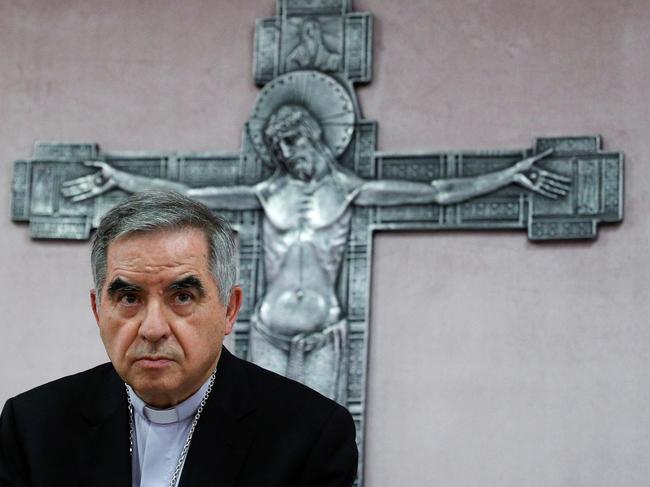
According to documents provided to the Tribunal, Angelo Becciu signed Marogna’s letter of appointment in November 2017, charging her with providing “professional services as a geopolitical analyst and consultant on external affairs for the Secretariat of State”. However, the Vatican Tribunal heard she had been on the books since at least 2016.
In April 2021, Marogna decided to explain her role personally on an Italian television program, saying she had been hired by Cardinal Becciu to “make dossiers”: “Yes, let’s call it dossier-making … but also discourse about the amoral conduct of certain high prelates. A secret service acting in parallel and interacting with other parallel international services.” Extraordinarily, in the same interview, Marogna named several mentors she said had helped train her in her business; among them a fellow Sardinian known as “Mr Fixit”, the late Flavio Carboni, said to be the last person to see “God’s banker”, Roberto Calvi, alive before he was found hanged on Blackfriars Bridge on June 17, 1982, and Francesco Pazienza, sentenced for his own role in the Ambrosian Bank scandal.
Calabrò details several payments to Marogna and their odd timing, showing that the first two, totalling €125,000, were made within a month of the second jury finding Pell guilty on five counts of abuse against minors. Then, two days after Pell’s guilty verdict was made public and he was taken into custody, Marogna’s Slovenian account received another €75,000, while a fourth payment of €75,000 was transferred a month after he was sentenced to six years’ jail. Even more curious is that on July 8, 2019 – a few weeks after Pell began his appeal – four payments totalling €250,000 were made to her account on the same day.
The following month, writes Calabrò, the Court of Appeal upheld Pell’s verdict, with a dissenting opinion by Judge Weinberg. Pell appealed to the High Court in September and on April 7, 2020, judges voted unanimously to overturn the original conviction. Cardinal Becciu, just sacked by Pope Francis on September 24, 2020, told Italian national newspaper Corriere della Sera he had been treated “worse than a pedophile”.
Ironically, a few days after, Becciu complained formally to the Vatican police about another article written by the newspaper’s own deputy editor, which accused him of sending €700,000 to Australia to pay witnesses testifying against Pell. However, when the officers arrived at this apartment, rather than listening to his complaint, they informed him for the first time that his friend, Cecilia Marogna, was being investigated by Vatican prosecutors.
Calabrò says Pell told her, during an interview on his return to the Vatican, that a lot of money had indeed been transferred to Australia concurrent with his court case: “Normally money leaves Australia bound for the Vatican, not vice versa.”
“Not long before” says Calabro, “I also interviewed Pier Luigi Maria Dell’ Osso, the chief prosecutor in the case investigating the Banco Ambrosiano and banker Roberto Calvi’s death. I asked him his views on the Sloane Avenue case. A renowned specialist in anti-money laundering and mafia, he told me that the saga felt like ‘watching the same old film on repeat … in the affairs of the Secretariat of State, the same widespread incompetence, the same scams, the same collusion 40 years later … And just like in the Calvi case, the operations were so opaque that it was difficult to ascertain who was the embezzler and who was being embezzled’.
“I asked him his advice on the system, and he told me, ‘the entire Vatican financial system does not need reform: it must be rebuilt from its very foundations because otherwise the section that has been “regulated” will simply sprout another, which will, without doubt, reproduce exactly the problems of the first’.”



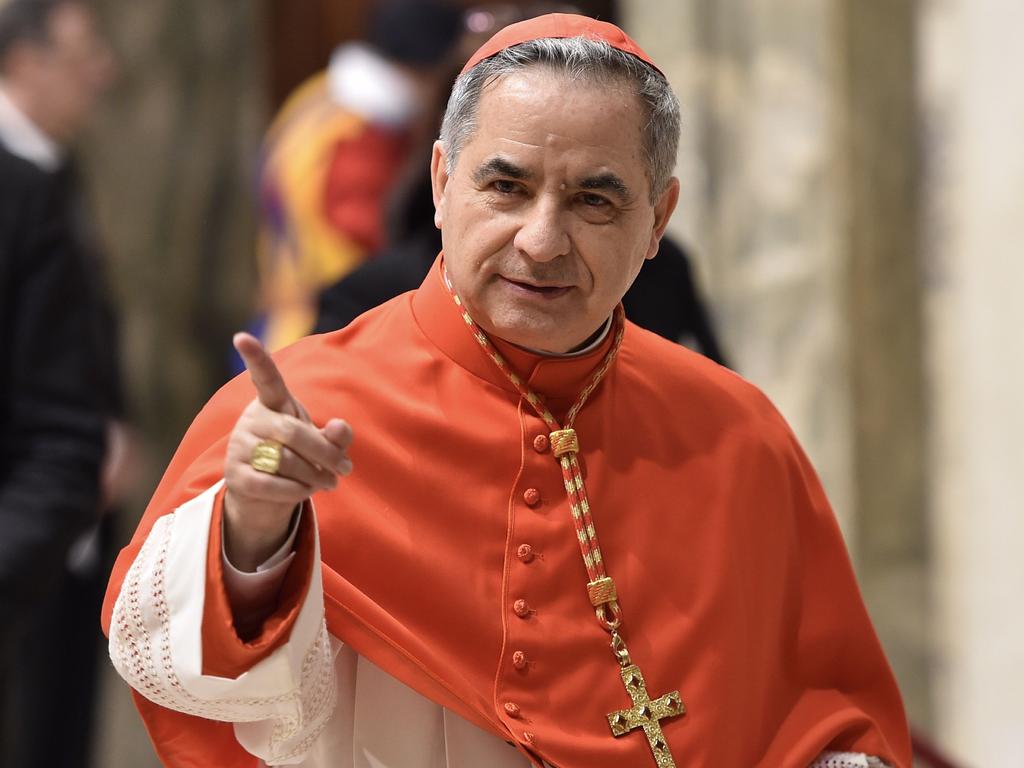
To join the conversation, please log in. Don't have an account? Register
Join the conversation, you are commenting as Logout